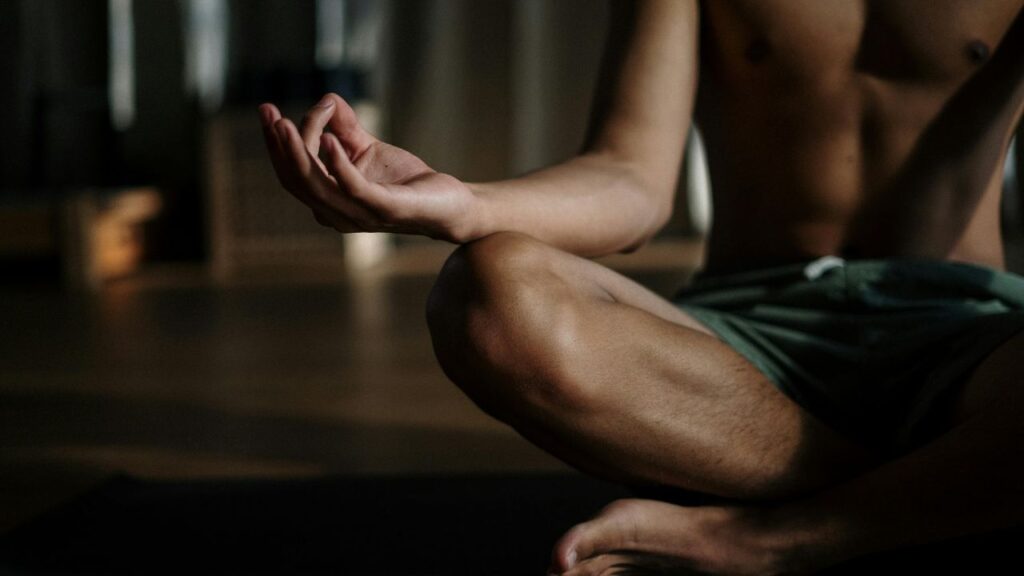Addiction is a complex disease that affects the mind, body, and spirit. While traditional treatment methods like therapy and medication can be effective, many people in recovery are turning to holistic practices like meditation to support their journey. At JourneyPure At The River, we believe that incorporating meditation and mindfulness into addiction treatment can have powerful benefits for our clients.
What is Meditation?
Meditation is a practice that involves focusing the mind on the present moment, often through breath work or visualization. It has been used for centuries in various cultures and spiritual traditions, but in recent years, scientific research has begun to uncover the many ways in which meditation can support mental health and addiction recovery.
Benefits of Meditation for Mental Health
One of the most significant benefits of meditation is its ability to reduce stress and anxiety. When we’re stressed, our bodies release cortisol, a hormone that can trigger cravings and increase the risk of relapse. By practicing meditation regularly, we can learn to calm the mind and reduce stress levels, which can help us stay focused on our recovery goals.
Meditation has also been shown to have a positive impact on mood and emotional regulation. Studies have found that regular meditation practice can increase levels of serotonin, a neurotransmitter that plays a key role in regulating mood and reducing symptoms of depression and anxiety.

The Science Behind Meditation and the Brain
In addition to its mental health benefits, meditation has also been shown to have a significant impact on the brain itself. Studies using brain imaging techniques have found that regular meditation practice can increase gray matter density in areas of the brain associated with attention, emotional regulation, and self-awareness.
One study published in the journal Frontiers in Psychology found that just eight weeks of mindfulness meditation training led to significant increases in gray matter density in the hippocampus, a region of the brain involved in learning and memory. This suggests that meditation can actually change the structure of the brain over time, making it easier to manage cravings and maintain sobriety.
Types of Meditation Practices
There are many different types of meditation practices, each with its own unique focus and techniques. Some common types of meditation include:
- Mindfulness meditation: This type of meditation involves focusing on the present moment and observing thoughts and sensations without judgment.
- Loving-kindness meditation: This practice involves cultivating feelings of love and compassion towards oneself and others.
- Transcendental meditation: This type of meditation involves the use of a mantra or repeated phrase to help quiet the mind and achieve a state of deep relaxation.
- Guided visualization: This practice involves using mental imagery to create a sense of calm and relaxation.
At JourneyPure At The River, we utilize various types of meditation and mindfulness practices into our holistic treatment approach for those who choose to incorporate it into their treatment. This may include guided meditations, breathwork exercises, or mindful movement practices like yoga or tai chi. We believe that by providing our clients with a range of tools to support their recovery, we can help them build a strong foundation for lasting sobriety.
Tips for Getting Started with Meditation
If you’re new to meditation, it can be helpful to start with short, guided practices and gradually work your way up to longer sessions. Here are some tips for getting started:
- Find a quiet, comfortable space where you won’t be disturbed.
- Set aside a specific time each day for your meditation practice.
- Start with just a few minutes of meditation and gradually increase the length of your sessions over time.
- Focus on your breath and try to let go of any thoughts or distractions that arise.
- Be patient and kind with yourself – meditation is a skill that takes practice to develop.
Many apps and websites offer free guided meditations, and there are also plenty of books and resources available to help you get started.

Holistic Addiction Treatment at JourneyPure At The River
At JourneyPure At The River, we believe that meditation is just one piece of the puzzle when it comes to addiction recovery. Our comprehensive treatment approach includes traditional therapies like individual and group counseling, as well as holistic practices like art therapy, music therapy, and adventure therapy.
We understand that addiction is a disease that affects the whole person – mind, body, and spirit. That’s why we take a holistic approach to treatment, addressing not just the physical symptoms of addiction, but also the underlying emotional and spiritual issues that may be contributing to the problem.
Our team of experienced clinicians and therapists work closely with each client to develop a personalized treatment plan that meets their unique needs and goals. Whether you’re struggling with alcohol addiction, drug addiction, or a dual diagnosis, we have the expertise and resources to help you achieve lasting recovery.
Take the First Step Today
If you or a loved one is struggling with addiction, know that you are not alone. At JourneyPure At The River, we are here to support you every step of the way. Our holistic treatment approach, including meditation and mindfulness practices, can help you build the skills and resilience you need to overcome addiction and achieve lasting recovery.
Don’t wait another day to start your journey to healing. Call us today at 629-222-9449 to learn more about our program and how we can help you take the first step towards a brighter, healthier future.
